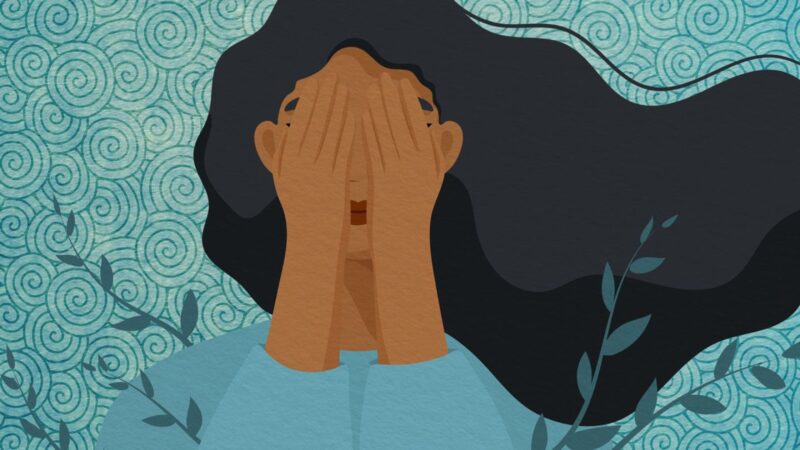How Social Media Impacts Kids’ Mental Health
The advent of social media has revolutionized how we communicate, share, and relate to one another. These platforms, such as Facebook, Instagram, Snapchat, and TikTok, among others, have become intrinsic parts of daily life for many, especially kids. While they offer numerous benefits, such as fostering connection and creativity, concerns about their potential impact on the mental health of younger users have been growing. This article delves into some of these impacts, focusing on children and adolescents.
The Pressure to be Perfect
In the world of filters, photo edits, and curated lives, children are bombarded with images of “perfection.” They see friends, celebrities, and influencers leading seemingly flawless lives, setting an unrealistic standard for them to attain. This often leads to a skewed sense of reality, with kids feeling the need to constantly compare themselves to others. Such comparison can foster feelings of inadequacy, reduced self-esteem, and even depression. For some kids, this pressure can manifest in seeking validation through likes and comments, tying their self-worth to online metrics. As they chase these ephemeral validations, they often lose touch with genuine self-worth and self-awareness.
Increased Exposure to Cyberbullying
The anonymity that the internet provides can be a double-edged sword. While it allows kids to express themselves without judgment, it also opens the door to cyberbullying. With social media, bullying is no longer confined to schoolyards. Hurtful comments, shared rumors, or embarrassing photos can spread quickly, making the victim feel trapped and isolated. Cyberbullying can lead to severe emotional distress, anxiety, depression, and in extreme cases, suicidal thoughts. It’s imperative for parents, educators, and platform creators to take this issue seriously, ensuring safeguards are in place and educating kids on the importance of digital kindness.
Disrupted Sleep Patterns
Sleep is vital for the physical and mental well-being of children. However, the glow of screens and the urge to scroll “just a bit more” can interfere with regular sleep patterns. Studies have shown that excessive use of social media can push bedtime later, reducing the overall hours of sleep kids get. A lack of rest can exacerbate feelings of irritability, stress, and anxiety. Furthermore, important cognitive functions like memory, attention, and decision-making can be compromised. This sleep deprivation can affect their academic performance, mood, and overall well-being, making it essential for parents to regulate and monitor nighttime device usage.
Fear of Missing Out (FOMO)
FOMO is a phenomenon where individuals feel that they’re missing out on experiences others are having. Social media amplifies this by constantly showcasing the best moments of everyone’s lives. For children, seeing friends and peers participating in events they weren’t part of can evoke feelings of loneliness, exclusion, and self-doubt. This can lead to a compulsive need to be online always, fearing they might miss something. Over time, this persistent sense of missing out can contribute to chronic stress and anxiety.
Erosion of Genuine Human Connections
While social media does enable global connectivity, paradoxically, it can sometimes hinder deep, genuine relationships. Kids may have hundreds or thousands of “friends” or “followers,” yet feel profoundly lonely. The nature of online interactions often lacks the depth, nuance, and intimacy that face-to-face conversations offer. This can leave children feeling disconnected, leading to feelings of isolation and depression. Emphasizing the importance of offline interactions and teaching kids to balance online and offline relationships is crucial for their emotional well-being.
Distorted Reality and Decreased Empathy
Being constantly connected can sometimes make kids desensitized to real-world issues. The constant stream of information, news, and viral challenges can cloud their judgment, making it hard to differentiate between genuine issues and fleeting trends. Moreover, repeated exposure to distressing news or negative content can numb their emotional reactions, leading to decreased empathy. It’s essential to teach kids to engage critically with content, ensuring they remain compassionate and informed global citizens.
Coping Mechanisms and Resilience
Every coin has two sides. While there are negative aspects of social media, it also offers tools for building resilience. Kids can find support groups, positive communities, and resources that help them cope with personal challenges. Parents and educators can guide kids towards these resources, ensuring they’re using the platforms constructively. By fostering open communication, setting boundaries, and actively educating them about the digital realm’s intricacies, we can help them navigate the social media landscape safely.
Social media’s impact on kids’ mental health is multifaceted, with both negative and positive implications. By understanding these impacts, we can create a safer, more inclusive, and nurturing digital environment for our younger generation.

Deepa Mahar is an independent blogger and admin of DeepAdvices who is exploring the beauty of the blog writing from a variety of subjects and books to health, science and others. She believes the blog would be helpful to the reader in the context of knowledge. She is post-graduated with a degree of Biotechnology.






